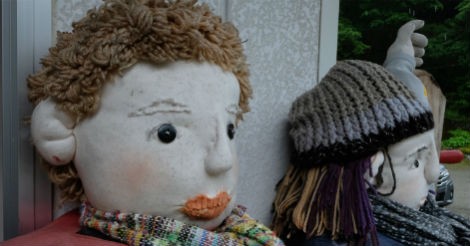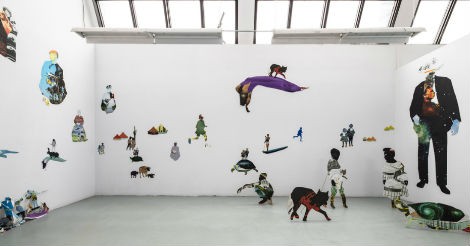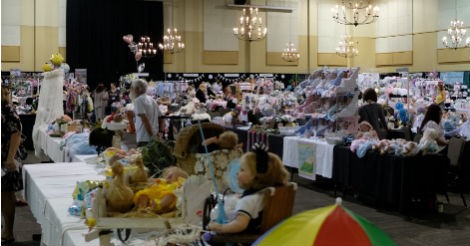Public scholars
Emilie St-Hilaire
I study lifelike dolls and the motivations of their collectors in order to rethink non-human companionship.
Emilie St-Hilaire is a multidisciplinary artist and doctoral candidate in Concordia’s Humanities PhD program. She is studying the idiosyncratic and widely misunderstood practice of reborn doll collecting from a feminist perspective. She has published in the journal RACAR on the topic of research-creation and has exhibited her artwork at galleries and festivals nationally and internationally. Her doctoral research has been supported by scholarships from the FRQSC, Concordia University, Hexagram Network and Francofonds.
Discipline
Humanities (Art Education, Design & Computation Arts, Theatre)
Languages
English, French
Supervisor
MJ Thompson, Christopher Moore, Mark Sussman
Website
Join the conversation
Emilie St-Hilaire: examining non-human companionship
News
-
Emilie St-Hilaire, a Concordia Public Scholar and PhD candidate in the Humanities, was interviewed for an article by Kelli Korducki in The Guardian. Read more
-
Emilie St-Hilaire and Maya Hey explore the challenges surrounding practice-based research and the need for transdisciplinary approaches to real-world problems Read more
-
Emilie St-Hilaire writes about the future of Notre Dame Cathedral in the Winnipeg Free Press Read more
Emilie's blog posts
-
 Public Scholar Emilie St-Hilaire proposes that this may be a great time for collaborative writing. Read more
Public Scholar Emilie St-Hilaire proposes that this may be a great time for collaborative writing. Read more -
 Nagoro’s doll residents bring life and tourists to Japan's Iya Valley. Read more
Nagoro’s doll residents bring life and tourists to Japan's Iya Valley. Read more -
 This article explores the dolls we have, and the relationships we want. Read more
This article explores the dolls we have, and the relationships we want. Read more -
 5 reasons why artists can trust this simple advice. Read more
5 reasons why artists can trust this simple advice. Read more -
 Let’s not allow antiquated and gendered ideas about age-appropriate play prevent individuals from accessing a fulfilling activity. Read more
Let’s not allow antiquated and gendered ideas about age-appropriate play prevent individuals from accessing a fulfilling activity. Read more